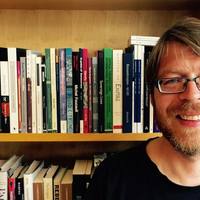
Richard Ek
With a Bachelor in political science and a Ph.D. in human geography I consider myself being a political geographer, primarily interested in how power over territories are articulated, implemented and consolidated. In my Ph.D. I studied how the spatial visions regarding the future of the transnational Öresund region was used as a discursive tool to “steer” the societal development in a certain (neoliberal) direction as the same time as the same spatial visions excluded alternative geographies. After my Ph.D. I paid special attention to how political and economic interests strive to create a “Europe on speed”, that is, through different infrastructure projects build a “faster Europe”.
On the Department of Service Management, my research interests has broadened, through an additional interest in the spatiality of the service economy. Discourses about the “experience economy”, “service encounter” and particular “servicescapes” have caught my interest. To some degree, my interest overlaps the research focus in Critical Management Studies (CMS), especially on issues like work-place subjectification and employee discipline-and-surveillance.
On the Department of Service Management, my research interests has broadened, through an additional interest in the spatiality of the service economy. Discourses about the “experience economy”, “service encounter” and particular “servicescapes” have caught my interest. To some degree, my interest overlaps the research focus in Critical Management Studies (CMS), especially on issues like work-place subjectification and employee discipline-and-surveillance.
less
Uploads
Papers by Richard Ek
The geographical vision is defined as a cognitive set of imagined and material pictures of the future structured as a spatial whole. The geographical vision is, in addition to this, a spaceconfiguration-, power-, and disciplinary - instrument, and, the product of a discursive process of struggle/negotiation over competing understandings of how a specific territorial timespace should be shaped in the future. Three geographical visions in the discourse of the Öresund Region are deconstructed and critically discussed, presented as storylines:
-The r/evolution of regional organisms
-The "high-speed" region
-The social integration over the Sound, or, the political disciplinary project
Key words: Inscription, Topology, Environmental governance, Invoice, Waste, Pay-as-you-throw